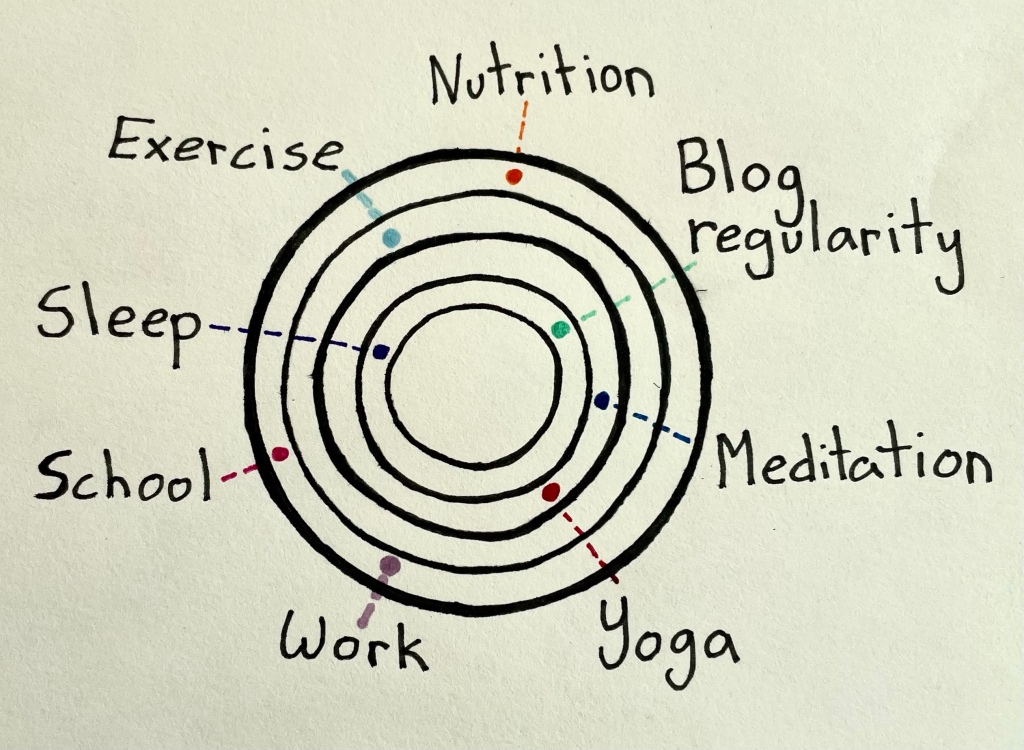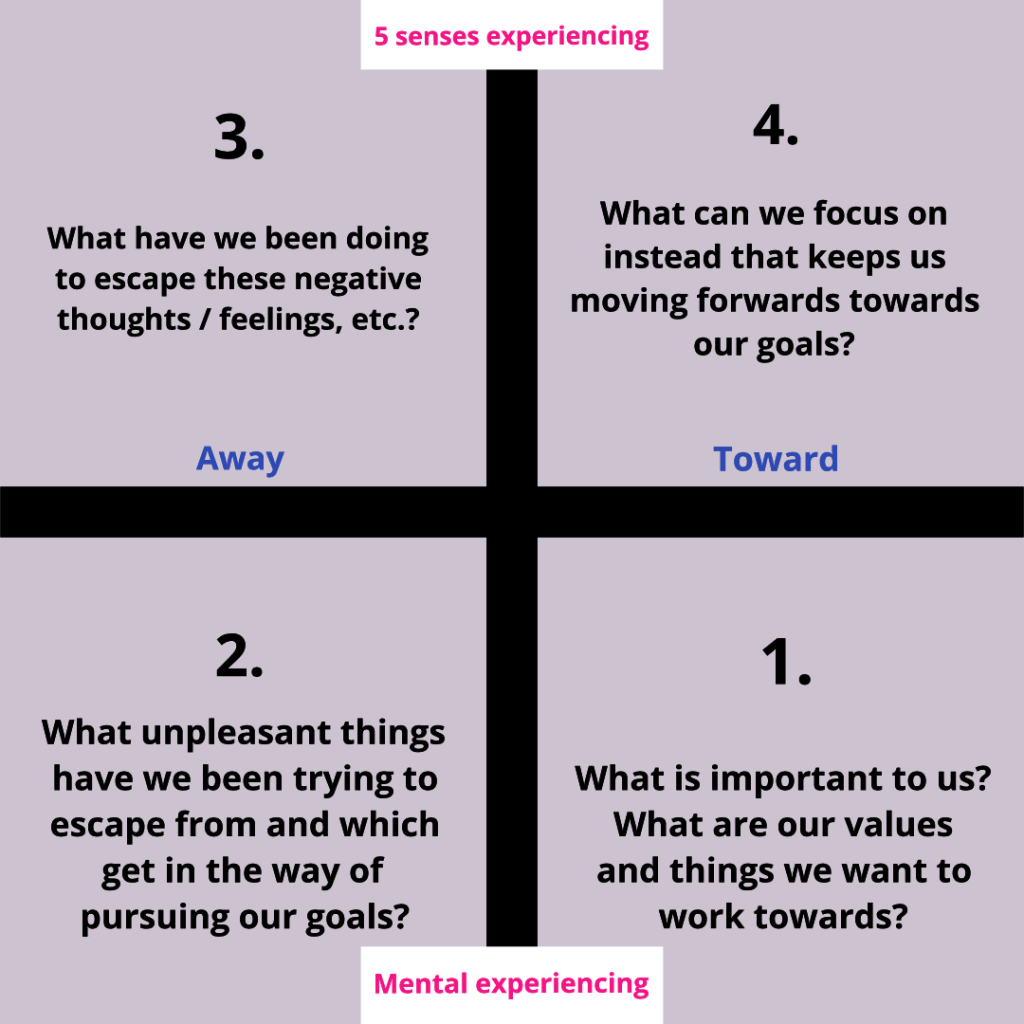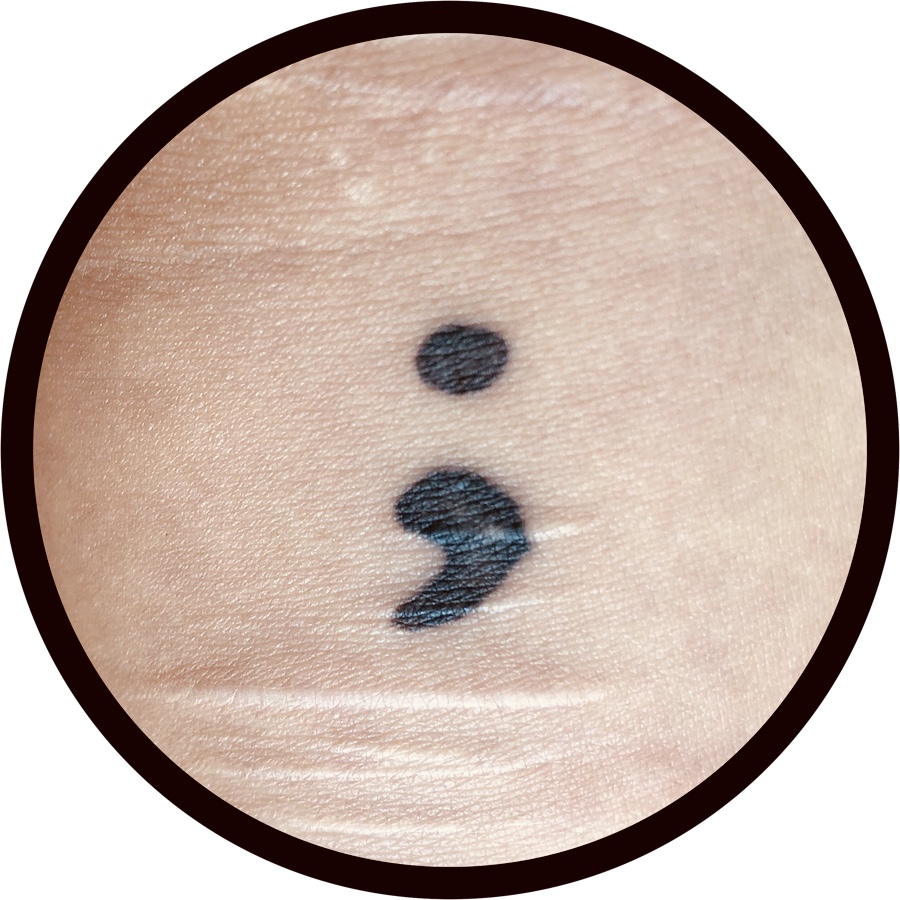Hi, it’s day 21 while I’m publishing this but I started writing on day 14. Some of this blog will be anachronistic but oh well.
I can’t wait to go home. I feel like I’m missing the best of summer. Here I am sitting in the solarium looking at the blue sky and gorgeous mountain view. Ah well. I put myself here after all. At least I’m not at the Douglas! Yesterday Aaron came and we had a nice afternoon and evening together. Today my parents are coming and I’m excited for that!
I’m back. A doctor looked at my cut and my nurse changed the bandage. I got to take a sink shower and wash my hair which felt good and then I did some yoga. Today my goal is to share some new Acceptance and Commitment Therapy (ACT) activities I find interesting and helpful.
Bullseye Worksheet
The first activity is the Bullseye which helps us identify goals and track our progress towards them. The rings of the bullseye represent 1 to 5. The centre of the target is #1 and signifies our goal. # 5 is the outermost ring and represents being furthest from our goal. The categories can be personalized to meet our specific ideas and this exercise makes for a helpful wall reminder. We simply place a dot in one of the zones to signify how we rate our progress.
Here are a few of mine:

Kevin Polk Psychological Flexibility Exercise
This exercise is about noticing and modifying the way we move away from unfavourable things and closer to favourable things. At the same time it shows the difference between mental experiencing and 5 senses experiencing.

First, let’s establish that difference. A commonly used example is done with a pen. Put the pen in front of you and don’t touch it. Describe it to the best of your ability – imagine the texture, the sound it makes, etc. This is mental experiencing. Now pick up the pen and feel the surface. Click it, smell it, etc. This is 5 senses experiencing. 5 senses experiencing helps us remain in the present moment and live it fully. Mental experiencing however often gets clouded by passing thoughts which makes it easier to stray from the present.
Now let’s cover the meaning of ‘towards’ and ‘away’! ‘Towards’ refers to the good things we want that we’re trying to approach. ‘Away’ refers to the negative things we’re trying to distance ourselves from.
In life, the stick is usually more powerful than the carrot. We’re more afraid of repercussions and bad things than we are motivated by rewards and good things. A major problem with this is that we concentrate so hard on NOT thinking this and NOT feeling that, that we have no energy left to work towards what we DO want. Hence, we make little to no progress. I’ll give a personal example by answering the questions of the exercise:
1. I want to work towards writing and publishing more. I also want to go back to school and back to work.
2. I’m trying to get away from my inner darkness. The compulsions to hurt myself, the self-hatred, etc.
3. I run away by staying as busy as I can. I pile on new projects that aren’t necessarily priorities which means that the most important things don’t get done.
4. I should concentrate on the specific areas in which I’d like to improve. That way my energy is directed towards priorities instead of being dissipated by running around everywhere. Even if my energy is lower, the thing I DO accomplish will correspond with my goals.
Self-Appreciation Worksheet
Select a time period for this exercise. 6 months, one year, since enrollment in school, since attaining a certain job, etc.
1. What were your accomplishments, even if they in this time period seem small to you?
2. Describe one of your best days in this time period and what made it so great.
3. What major things did you learn since this period began?
4. List 5 things you’re grateful for in this period.
5. Name one challenge that you overcame.
6. Try to name 3 positive things that happened that you wouldn’t have thought possible the previous year.
7. What was your proudest moment?
I hope you enjoyed these 3 exercises! I’ll be back with more when I find other ones I find particularly helpful. Have a wonderful weekend everyone!


Russ Harris has a lot of great ACT worksheets on his site The Happiness Trap. http://thehappinesstrap.com/free-resources/
LikeLike
Thank you so much for the reference! I’ll check it out!
LikeLike